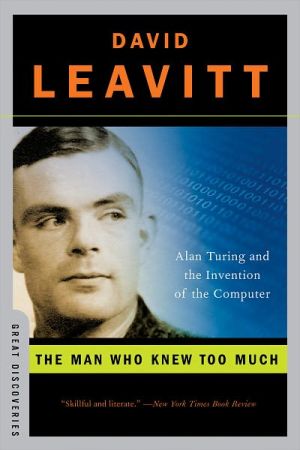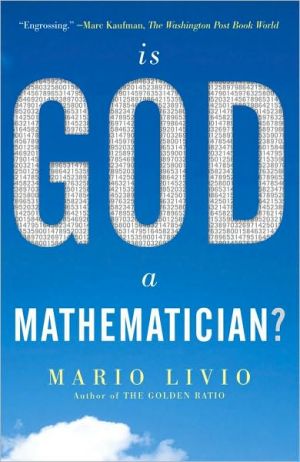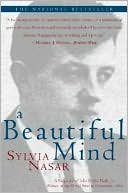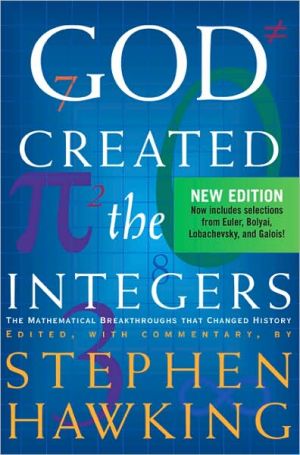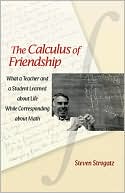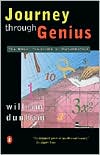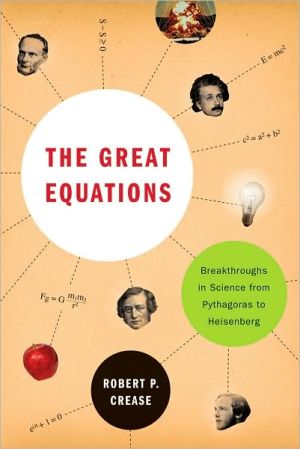Man Who Knew Too Much: Alan Turing and the Invention of the Computer (Great Discoveries Series)
To solve one of the great mathematical problems of his day, Alan Turing proposed an imaginary computer. Then, attempting to break a Nazi code during World War II, he successfully designed and built one, thus ensuring the Allied victory. Turing became a champion of artificial intelligence, but his work was cut short. As an openly gay man at a time when homosexuality was illegal in England, he was convicted and forced to undergo a humiliating "treatment" that may have led to his suicide.\ With...
Search in google:
A "skillful and literate" (New York Times Book Review) biography of the persecuted genius who helped create the modern computer. Publishers Weekly Hounded by authorities and peers alike, British mathematician Alan Turing committed suicide in 1954 by biting into a cyanide-laced apple. A groundbreaking thinker in the field of pure math, a man principally responsible for breaking the Enigma code used by the Germans during WWII and the originator of the ideas that led to the invention of the computer, Turing was also an avowed homosexual at a time when such behavior flew in the face of both convention and the law. Leavitt (The Body of Jonah Boyd) writes that the unfailingly logical Turing was so literal minded, he "neither glorified nor anthologized" his homosexuality. Educated at King's College, Cambridge, and Princeton, Turing produced the landmark paper "On Computable Numbers" in 1937, where he proposed the radical idea that machines would and could "think" for themselves. Despite his Enigma code-breaking prowess during the war, which gave the Allies a crucial advantage, Turing was arrested in 1952 and charged with committing acts of gross indecency with another man. With lyrical prose and great compassion, Leavitt has produced a simple book about a complex man involved in an almost unfathomable task that is accessible to any reader. Illus. (Nov. 28) Copyright 2005 Reed Business Information.
\ Publishers WeeklyHounded by authorities and peers alike, British mathematician Alan Turing committed suicide in 1954 by biting into a cyanide-laced apple. A groundbreaking thinker in the field of pure math, a man principally responsible for breaking the Enigma code used by the Germans during WWII and the originator of the ideas that led to the invention of the computer, Turing was also an avowed homosexual at a time when such behavior flew in the face of both convention and the law. Leavitt (The Body of Jonah Boyd) writes that the unfailingly logical Turing was so literal minded, he "neither glorified nor anthologized" his homosexuality. Educated at King's College, Cambridge, and Princeton, Turing produced the landmark paper "On Computable Numbers" in 1937, where he proposed the radical idea that machines would and could "think" for themselves. Despite his Enigma code-breaking prowess during the war, which gave the Allies a crucial advantage, Turing was arrested in 1952 and charged with committing acts of gross indecency with another man. With lyrical prose and great compassion, Leavitt has produced a simple book about a complex man involved in an almost unfathomable task that is accessible to any reader. Illus. (Nov. 28) Copyright 2005 Reed Business Information.\ \ \ \ \ Library JournalSparks are bound to fly when the life of one of the 20th century's greatest scientists and thinkers is displayed through a gay lens. Novelist Leavitt (The Lost Language of Cranes) picks over old bones in the closet of acclaimed mathematician, cryptographer, computer theorist, and philosopher Alan Turing (1912-54), looking for insight into the influence that his homosexual orientation might have had on his personal and professional life. Turing spent his life bridging the gap between pure mathematics and real-world applications. Perhaps the best example of his work is the machine that broke Germany's World War II Enigma cipher. This book balances lay reader-friendly explanations of Turing's accomplishments with the story of his life and offers a great exploration of the relationship among reputation, talent, and influence. But despite Leavitt's best efforts to bring something new to Turing's story, the gay lens never really illuminates anything of substance. Because the book attempts to appeal to a gay readership, some popular science readers will be lost. For larger collections only.-James A. Buczynski, Seneca Coll. of Applied Arts & Technology, Toronto Copyright 2005 Reed Business Information.\ \ \ Kirkus ReviewsGiven the example of the great British mathematician and inventor Alan Turing, it's ironic, writes novelist Leavitt (The Body of Jonah Boyd, 2004, etc.), that the study of mathematics was once thought to cure homosexuality. Turing expanded upon important ideas of how thinking happens and how machines could be taught to think, and he had a certain inclination toward machine-like literalness himself. A brilliant man who never quite shone, he was always off in the corner, becoming increasingly eccentric and spectacularly unhygienic as he grew older, oblivious to the norms by which others around him lived. Still, Turing found himself at the very heart of the British effort during WWII to crack the German Enigma code. He labored endlessly to decrypt enemy communications, making important discoveries about machine logic in the process. Many of Turing's contributions to mathematics and nascent computer science date to his years doing top-secret work at Bletchley Park. He might have gone on to greater things had he not been hauled up on the postwar morals charge of "gross indecency with another male: the same crime of which Oscar Wilde had been convicted, and for which he had been sent down, more than fifty years before." No jail for Turing, though: He instead ate a cyanide-laced apple in homage to a favorite movie, Snow White and the Seven Dwarfs, a gay martyr who had written of himself, sadly: "Turing believes machines think / Turing lies with men / Therefore machines do not think."Competent and always interesting, if a little cursory on some of the heavier mathematics.\ \
